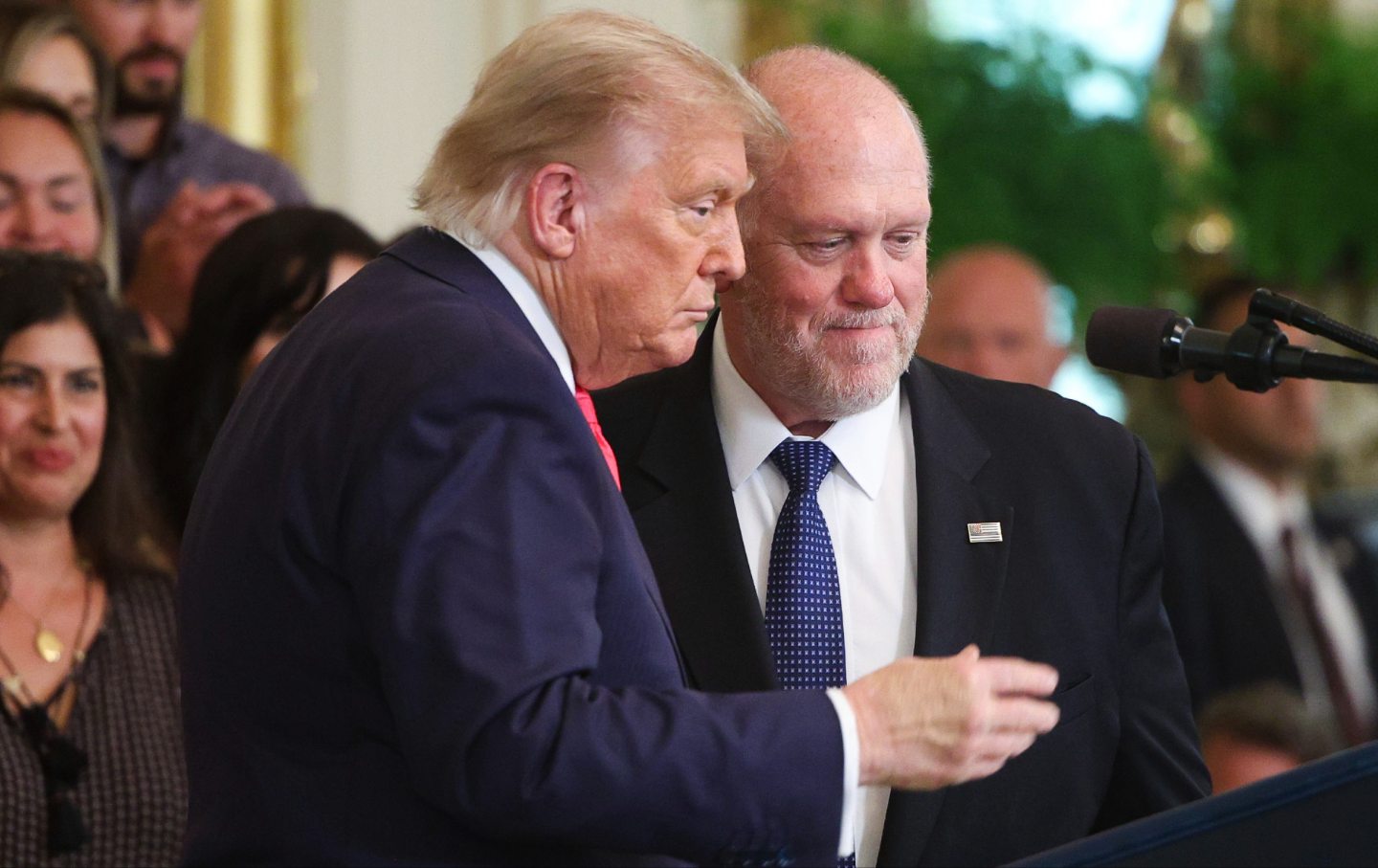
Donald Trump’s administration has consistently demonstrated a striking willingness to abandon democratic norms and principles, particularly in its treatment of political adversaries. While he may lie about many issues, one truth remains clear: his unabated animosity towards opponents is a driving force of his presidency. This was glaringly evident during a recent memorial for Charlie Kirk, a right-wing activist, where Trump’s remarks starkly contrasted with the somber tone of the occasion.
At the memorial held in an NFL stadium in Arizona, attendees, including Kirk’s widow, Erika, opted for messages of forgiveness and healing. Erika even offered forgiveness to her husband’s alleged assassin, embodying a spirit of compassion that is often absent in political discourse today. However, Trump, ever the contrarian, chose to veer off the path of civility. Addressing the 60,000-strong crowd, he stated, “That’s where I disagreed with Charlie. I hate my opponent and I don’t want the best for them.” This statement encapsulates the ethos of his governance: a relentless pursuit of power that prioritizes personal vendettas over national unity.
Trump’s tenure has been characterized by the alarming use of law enforcement as a tool for personal gain, targeting opponents while shielding allies from accountability. Recent events underscore this troubling pattern. On Saturday night, Trump publicly demanded that Attorney General Pam Bondi initiate investigations against prominent critics—the likes of former FBI director James Comey, Senator Adam Schiff, and New York Attorney General Letitia James. In a post shared on social media, he expressed frustration that these individuals had not faced consequences for their alleged wrongdoing, insisting that “justice must be served, NOW!!!”
Simultaneously, troubling revelations emerged regarding Tom Homan, Trump’s former acting director of Immigration and Customs Enforcement. Reports surfaced of Homan’s involvement in an FBI sting operation where he was recorded accepting $50,000 in cash, allegedly in exchange for facilitating government contracts. This incident raises significant questions about the integrity of the administration and its commitment to ethical governance. Despite the apparent severity of the allegations, the investigation into Homan was abruptly closed by Trump appointees, further illustrating the administration’s penchant for prioritizing loyalty over accountability.
This pattern of corruption is not limited to individual cases; it reflects a broader systemic issue within Trump’s administration. David French, a conservative commentator, highlighted the dangers of a presidency that disregards the rule of law, stating, “If our laws depend on Trump’s voluntary compliance—then the president is unleashed.” Such a reality paves the way for a governance structure that is neither accountable nor just, posing a grave threat to the democratic foundations of the nation.
Moreover, the handling of the TikTok case exemplifies this corruption further. Despite a law passed by Congress and signed by President Biden, Trump has delayed action on the app until he can leverage its ownership for the benefit of his allies. This maneuvering underscores a willingness to bypass legal frameworks for personal advantage, further empowering an executive branch that operates with little regard for checks and balances.
The role of Congress in this dynamic cannot be overstated. Currently, Congressional Republicans have largely acquiesced to Trump’s authority, while many Democrats have chosen to focus on economic issues, often sidelining the pressing matter of executive corruption. Some, like Representative Alexandria Ocasio-Cortez and a handful of others, have attempted to raise awareness about the troubling implications of Homan’s case, but the overall response from Democratic leadership has been tepid.
This lack of urgency to confront Trump’s ethical breaches is shortsighted. As the administration prioritizes the interests of the wealthy elite, ordinary Americans continue to grapple with a growing affordability crisis. The notion that discussing Trump’s corruption could be integrated into a broader populist economic message must gain traction. Rather than viewing these issues as separate, Democrats should recognize that the fight against corruption is intrinsically linked to the fight for economic justice.
Ultimately, it is Congress that possesses the necessary authority to check Trump’s expanding abuse of power. By neglecting to address the corruption permeating the legal system, Democrats risk failing their constitutional duty. The Department of Justice is not merely an extension of presidential will, and its independence is crucial to preserving the integrity of American democracy.
Failing to confront Trump’s authoritarian tactics equates to an admission that democracy is on the precipice of collapse. As we navigate this critical juncture, it is imperative for Democrats to engage fully in this fight—because the stakes are nothing less than the future of our democratic institutions.


